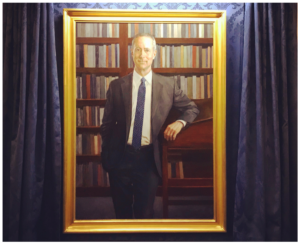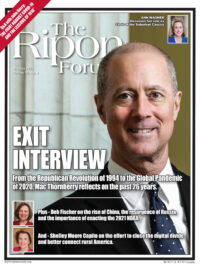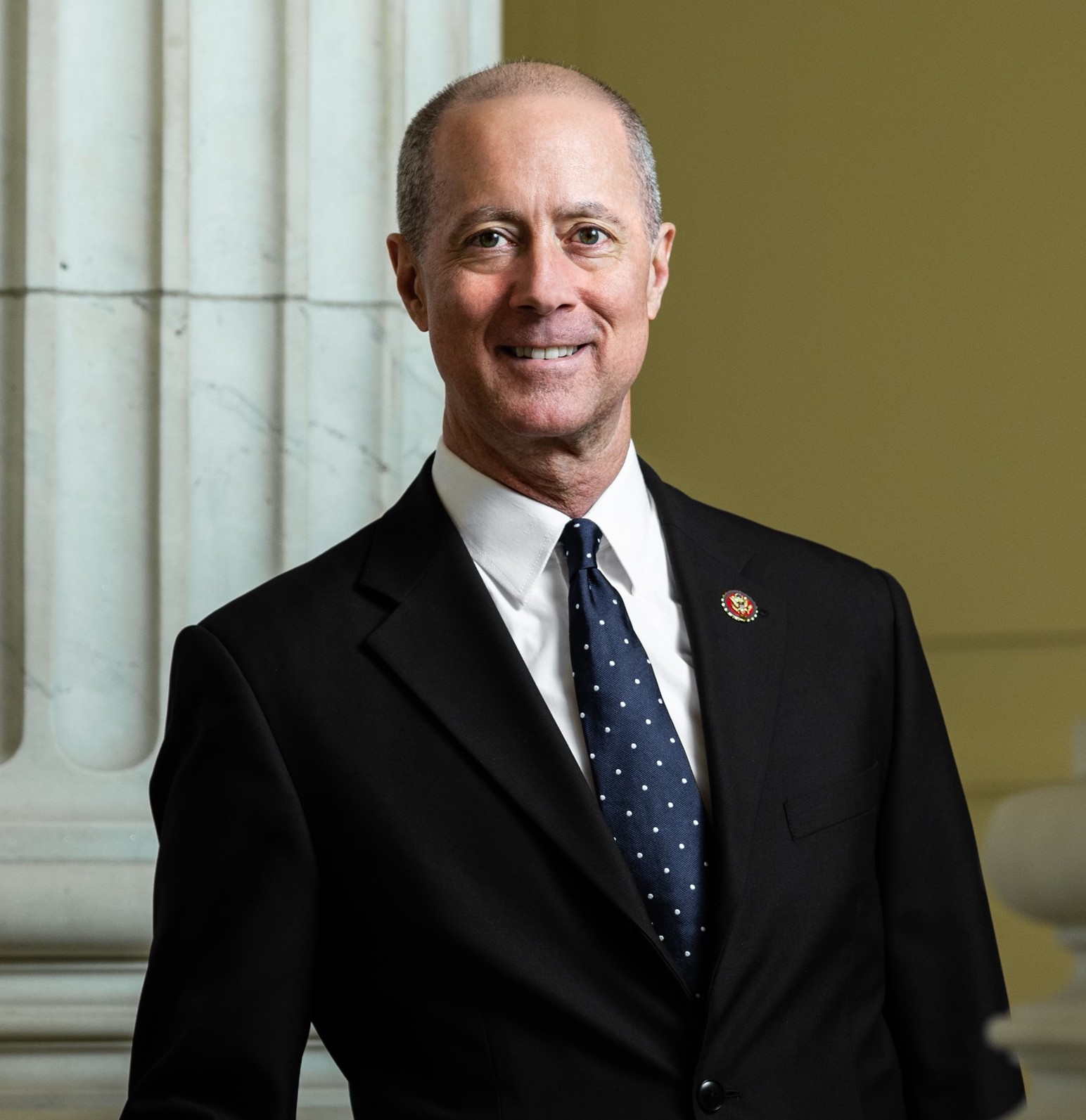From the Republican Revolution of 1994 to the Global Pandemic of 2020, Mac Thornberry reflects on the past 26 years.
Mac Thornberry was first elected to represent the 13th Congressional District of Texas as part of the Republican Revolution of 1994. In the years since, he has established a reputation as one of the leading authorities on national security issues on Capitol Hill.
He has also become known for his ability to look over the horizon. In the mid-1990s, for example, he was one of the few members of Congress talking about the Revolution in Military Affairs and the need to increase our investment in such areas as special forces and unmanned aerial drones.
In the late-1990s, he saw that the nation’s nuclear weapons complex needed reforming and introduced a bill to do just that. When the Wen Ho Lee spy scandal revealed holes in our nuclear security, his legislation became the basis for a package of reforms that, among other things, established the National Nuclear Security Administration.
A few years later, Thornberry was – unfortunately – proven right once again.
In March 2001, he introduced a bill to establish a Homeland Security Department so America was better prepared for a terrorist attack. On September 10, the bill had only a handful of cosponsors. By the following June, it became the basis for legislation that was signed into law. When asked later about the legislation and the fact that he had introduced it six months before 9/11, he said simply, “There are some things you don’t want to be right about.”
Thornberry went on to serve four years as Chairman of the House Armed Services Committee and currently serves as its Ranking Member. His tenure as Chairman was marked by three qualities — a commitment to rebuilding our Armed Forces after a period when our military was underfunded and being stretched too thin; a commitment to continuing to take the long view of the challenges facing our nation, whether it is the rise of China or the resurgence of Russia; and, a commitment to bipartisanship and making sure that U.S. defense policy has support on both sides of the political aisle.
Defense News once called him “a smart hawk who’s not afraid to buck the party line,” while National Journal called him “the E.F. Hutton of Congress” (because when he talks, everyone listens.) Last fall, Thornberry announced that this would be his last term in office. To honor his service and recognize his contributions to our military and national security, this year’s National Defense Authorization Act was renamed the ‘William M. (Mac) Thornberry National Defense Authorization Act.’
The Ripon Forum spoke to Thornberry recently about his service in Congress over the past 26 years, and the challenges facing America as it continues its fight against the COVID-19 pandemic and confronts a growing number of threats in an increasingly volatile world.
____________________________
Forum: You came to Congress as part of the Republican revolution in 1994 and are leaving during the global pandemic of 2020. These two events alone would be enough to define someone’s career, and yet you have seen and served during a number of momentous developments over the past 26 years. In your opinion, what were the most pivotal of these developments in reshaping not only the political landscape of Washington, but the geopolitical landscape around the world?
Thornberry: When it comes to national security, you have to say that 9/11 was the most significant event, not just because of the lives lost and the next 20 years of fighting terrorists. But it was such a shock for Americans to realize that we were not insulated here at home, and that we could be attacked here at home. The whole mindset, I think, was significantly different because we were used to feeling we’re protected by our oceans and that we’ve got the strongest military in the world. No one could get at us. Well, it turned out they could. I think that was a key change when it comes to American national security.
There have been tremendous changes in the political world. I don’t know that I could go through them all, but from the proliferation of media outlets to the growth of the internet and social media to the Supreme Court decision which allowed outside groups to spend unlimited amounts of money on campaigns, the political environment we’re all operating in is very different than it was in 1995.
Forum: Staying on the subject of national security, talk for a moment about some of the security challenges that we face. Again, when you came into office, America was the world’s preeminent economic and military superpower. Today, Russia is resurgent, China is on the rise and global Jihadi terrorists continue to be a threat. Did the world get more dangerous because we let our guard down or was our preeminence bound to be challenged in this way?
Thornberry: I think both are true. It is really hard for Americans to stay vigilant. We are very good at rising up to meet a specific threat, and then going back to our daily lives once we believe the threat has gone away. Part of it is the fact that America has always had isolationist tendencies. We want to just mind our own business, trading with other nations while staying out of their quarrels. This was especially true after the Berlin Wall fell and the Cold War ended. Staying vigilant was hard for us. And then we had 9/11. And while we focused our energies on defeating the terrorist threat, the threat from Russia, China, and others was allowed to grow.
“We’ve got to worry about the whole range of challenges, and that translates not only into budgetary implications, but mindset implications, as well.”
In many ways, we face more complex dangers today than we ever have before. Even during the Cold War, we had the focus and we put a lot of effort into not just building weapons, but into understanding Russia, their mindset and so forth. Today, our challenge is to understand a lot of different mindsets, a lot of different kinds of military capabilities, and so forth. We can’t afford to just focus on just one thing. We’ve got to worry about the whole range of challenges, and that translates not only into budgetary implications, but mindset implications, as well.
Forum: Looking at the budgetary implications, at the height of World War II in 1944, we were spending about 35% of our GDP on national defense. Today, that figure has dropped to about 3%. As Chairman of the Armed Services Committee, you led the effort to rebuild our military and invest more in our national defense after years of sharp decline. But how much of our security depends on dollars and cents, and how much of it depends on making sure this money is spent in a smarter way?
Thornberry: You have to focus on both. As a result of the Obama years, we saw what happens when we don’t put enough dollars into defense. In real terms, it was cut about 20%. One of the consequences of that was you saw service member accidents and service member deaths in training go up pretty significantly. It was really that increase in training deaths that helped convince, I think, Members of Congress in both parties that we had to reverse that trend and put more money into the military, just to be fair and responsible to the people who are out there risking their lives for us.
“We’re not putting the dollars into defense that we need to. Fifteen percent of the federal budget goes to defense these days, and yet everything else depends on it.”
But that just takes care of what we have. That does not address the threat coming from China, Russia, and others. Various commissions have said you need 3% to 5% real growth in defense spending in order to meet the challenges we face in this regard. We’re not doing that. We’re not putting the dollars into defense that we need to. Fifteen percent of the federal budget goes to defense these days, and yet everything else depends on it. Now, clearly at the same time, we’ve also got to make sure that we’re spending that money smarter and more efficiently. That’s part of the reason that acquisition reform and investments into new technologies have been such a priority for the Committee in recent years.
Forum: Looking back on the years you’ve been in office, what, in your opinion, were some of the key decisions made by Congress and the President that served to strengthen our national defense and keep the American people more secure?
Thornberry: The reaction that the nation had to 9/11 in the form of the authorizations to use military force, but also the funding in the years thereafter, have been very important. The hard thing about national security is taking into account the events that did not take place. I’m absolutely convinced that if we had not taken the fight to the terrorists and kept on offense, that there would have been more 9/11s, and they may have been far worse. So if you look at the last 20 years at least, the bipartisan decision to go on offense against terrorists was very significant, and I have no doubt saved American lives.
Forum: Following up on that and the flip side of the same coin, what were some of the decisions that were not made that in your opinion left us more vulnerable to threat or attack?
Thornberry: Well, the first thing that comes to my mind is Congress’s irresponsibility when it comes to funding the military. I think of Secretary Mattis’s quote, where he said that, ‘No enemy in the field has done more damage to our country than continuing resolutions have done.’
“The hard thing about national security is taking into account the events that did not take place. I’m absolutely convinced that if we had not taken the fight to the terrorists and kept on offense, that there would have been more 9/11s, and they may have been far worse.”
This is especially true when you’re looking at how we protect the country against the threat coming from Russia, China, and others. You’ve got to have consistent funding in order to develop new capabilities and in order to reassure allies, among other reasons. Generally speaking, Congress has not done that. And there are consequences that flow from that. I can’t say there has been any specific attack, but certainly our national security posture has been damaged because of it.

Forum: Shifting our attention away from Washington, you’ve always had a reputation as someone who believes that a person needs to see the world in order to better understand it. You’ve met with foreign leaders, visited U.S. bases overseas, and met with American troops in combat zones around the globe. Looking back on it all, what are some of your main memories and takeaways from these missions and these trips that you’ve made?
Thornberry: Oh, I think clearly the best part of international travel has been when I’ve gotten to be with our troops and walk with them or be with them as they carry out their missions for the country.
Now, obviously they don’t allow us to go into dangerous places. But I think of walking through some of the villages in Afghanistan. I think of staying up all night as operations were being conducted to remove terrorists from the battlefield. There is no substitute for at least being close at hand and seeing what incredible professionals we have who are protecting our safety and freedom. That’s clearly the best part.
I would say sometimes I felt a little weird being in the Kremlin, being in the Great Hall of the People in Beijing, and so forth. It’s kinda like, “What is this kid from Clarendon, Texas doing in this place?” But the best part has been with the troops.
Forum: Let’s talk about the future. We’re in the middle of the worst pandemic in over a hundred years in a global threat environment that can best be described as unstable. What keeps you awake at night and what areas when it comes to our national security, do you think Congress and the President need to pay special attention to in the years ahead?
Thornberry: The number one thing that keeps me awake, that worries me, is not something somebody else does. It is what we do to ourselves. I am absolutely convinced that we can protect American security, America’s way of life, and our values if we decide to. That’s why these budgetary decisions and similar sorts of political decisions that Congress and Presidents make are so important. And that’s the thing I worry about the most — whether we will decide to put the resources into it, support the men and women who are risking their lives for us, and be engaged in the world.
As for the kind of threat that I am most concerned about — and this’ll seem like I’m following the headlines — but every year in which I chaired the Emerging Threats Subcommittee, I had a hearing on biological threats.
“The biological threat is one that I am most concerned about, because it’s so hard for us to deal with and yet has such devastating consequences.”
I observed a tabletop exercise shortly after 9/11. And the premise was that terrorists were spreading an animal disease around the country. And when you looked at what it took — not just to identify it, but to contain it — it brought the country to a standstill. And I’ve thought of that many times with COVID, because that is what we’re seeing happen today. And I think there are countries around the world that are watching and learning about what’s happening right now. It’s hard to know whether something is naturally occurring, or are manmade or man spread. And so the biological threat is one that I am most concerned about, because it’s so hard for us to deal with and yet has such devastating consequences.
Forum: A few years back, Bob Gates said that “the greatest national security threat to this country at this point is the two square miles that encompasses the Capitol building and the White House.” Do you agree with him? Is political dysfunction a threat to our security? And if so, how do the parties come together to do what’s in our best interest down the road?
Thornberry: Political dysfunction is clearly a threat to our national security. On the other hand, bipartisanship on national security can be one of our country’s greatest strengths. We saw that after 9/11, and we have seen it on other occasions. Right now, one of the only issue areas that is receiving bipartisan support is support for our military. We were able to pass the Defense Authorization bill out of the House by a vote of 295 to 125. The Senate passed their version of the bill with a similar level of bipartisan support. But it’s getting harder and harder to hold this together because of the pressures of polarization. So our political system can be our greatest strength or our greatest weakness. And we’re seeing elements of both sides of that today.
Forum: Let’s finish with a Barbara Walters-like question. And it’s not, “If you were a tree, what kind of tree would you be?” Rather, the question is this: If you could have dinner with any three individuals in history, who would they be and what advice would they have for the American people today?
Thornberry: Well, I’ve got three busts in my office — of Lincoln, Churchill, and Ronald Reagan. If I were going to have dinner with them, I would want to do it one at a time so I could listen to each one individually. Now, I don’t know what they would say about the challenges we face today, but I absolutely believe that we can learn from their example. While they had very different challenges and very different circumstances, we can learn from how they dealt with what they were faced with, and we can also learn from their character and the example that set.
Forum: Since we are talking about advice, what advice do you have for your colleagues as you prepare to leave the Hill after 26 years?
Thornberry: We’ve talked about it. My number one piece of advice is do everything you can to try to maintain bipartisan support for our military. And I would also add to that maintain the bipartisan approach to engagement with the world that has been so successful for us and for the world since the end of World War II.
Back to your previous question, if I have one other worry that keeps me up at night, it is that we have lost sight of what a series of remarkable decisions we made right after World War II, and how we have benefited in the years since. And you see elements in both parties who seem to be willing to walk away from keeping a strong military and from being engaged in the world. And man — I think it’s so important that we hang on to that success. Of course, it needs to be adjusted to meet the realities of today. But we need to maintain this approach that has been so successful for us and for most others in the world.





